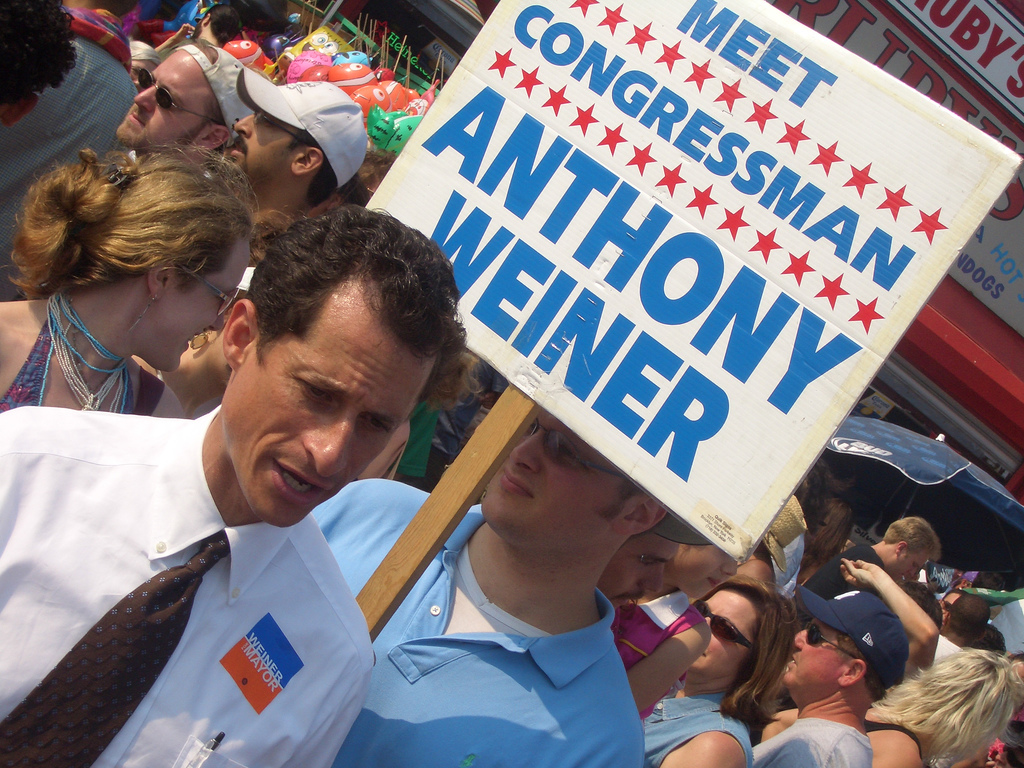
The sexting scandal of New York mayoral candidate Anthony Weiner may seem new, if only because of the technology. But it reminded me of the old adage “What’s old is new again.” I knew another mayoral candidate, with a similar problem, in a very different place.
Two decades ago, I was a reporter for The Baltimore Sun when I met Spencer Schlosnagle. A lanky, amiable young man of 30, Schlosnagle was in the midst of a re-election campaign for mayor of Friendsville, a small town along the north-flowing Youghiogheny River in the Western Maryland mountains. Complicating his reelection were accusations that he had been exposing himself to motorists along a nearby interstate.
Schlosnagle saw his name go into headlines in newspapers and magazines throughout the Maryland panhandle and beyond. He was even profiled on TV’s Current Affair. These were the days before smartphones and the Internet.
His attorney at the time said Schlosnagle suffered from “impulsive personality disorder” and was seeking counseling.
Despite the controversy, Schlosnagle won. His margin of victory was a resounding 99 votes in a town with a population of just 577.
The population has dropped since then, but, all these years later, Schlosnagle, approaching 50, remains mayor.
The immediate political future of Weiner doesn’t look as bright. Before his latest controversy erupted in July, Weiner was among the leading Democratic contenders in the city’s mayoral race. New Yorkers seemed to have forgiven the former city councilman for sexual exploits that surfaced in 2011 and were willing to give him another chance. That was until he was revealed to have continued them in the months that followed. Now he’s tumbling in the polls.
So what accounts for one politician’s redemption and another’s deterioration?
What Schlosnagle, who, at 21, was the youngest person ever elected mayor in Maryland, seems to have learned well is that all politics is local. He may have caused a stir in conservative, small-town Western Maryland, but he knew his constituents.
He was one of them. They passed him on the streets regularly, shook hands with him at community events, and attended Sunday services together. He had personal problems, for sure, but his constituents in Friendsville saw them as just that: Schlosnagle’s problems. And he handled them himself, publicly and in the courts.
His record was impressive. Schlosnagle worked hard to spruce up the town, winning millions of dollars in government grants to improve public services and parks. He brought new businesses into vacant buildings. He pushed for repair and construction of new sidewalks and trimmed overgrown trees along streets. Ultimately, he helped improve the image of a town that had previously been seen as an Appalachian Dodge City, where the bars were home to frequent fights and shootings.
The bottom line: As mayor, Schlosnagle delivered the goods.
And there lies Weiner’s problem. What has he accomplished as a politician other than other than notoriety? A recent examination of Weiner’s 12-year congressional career by The New York Times showed he was the leading sponsor of just one piece of legislation. It did not become law.
When Weiner announced his mayoral candidacy in the spring, he acknowledged that he had “made some big mistakes” but hoped “to get a second chance” to help out those in the middle and working classes. New Yorkers were even open to giving him a second chance.
But his more recent revelations of online sexual escapades show that he has not learned his lesson. And, unlike Schlosnagle, he had no record on which to lean
It could be, too, that the combative, self-aggrandizing personality of Weiner and the pain he’s caused his wife have made New Yorkers reluctant to forgive him. He’s not just hurting himself but others as well.
Schlosnagle was single. He didn’t deceive anyone, least of all his constituents, about his shenanigans. He faced up to them in court. He sought counseling. He may have paid a small political price; he had ambitions of being a county commissioner, and those were never realized. But he continues to serve as mayor of Friendsville, and he was even inducted into the Maryland Municipal Hall of Fame in 2004. His redemption came from a combination of his easy-going but earnest personality, his community accomplishments, and the wisdom of the people of Friendsville, who saw his potential despite personal problems.




Send A Letter To the Editors